Training Part 2 - Mental Training
Erik Dresser, row2k.com
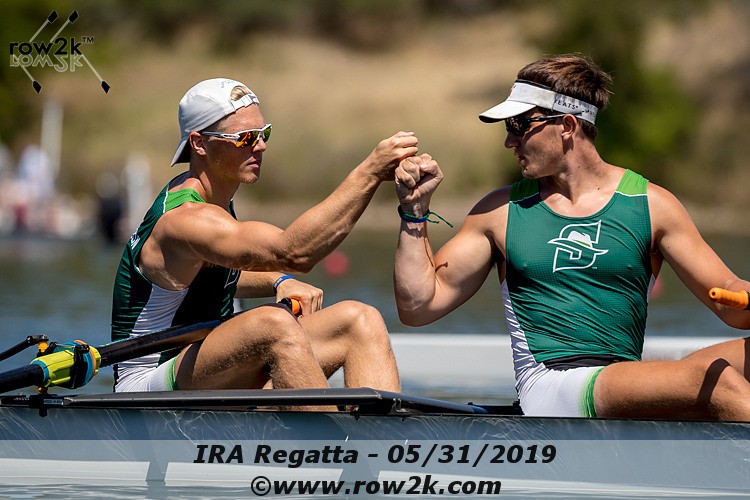
Following the cancellation of the 2020 spring racing season, row2k solicited the collegiate coaching community to engage in a variety of high-level topics within the profession. We submitted over sixty questions across a dozen topics and thank the coaches and staffs that found time to contribute their thoughts during this stressful time.
This week we focus on the topic of Training with the following question:
HOW DOES YOUR PROGRAM MENTALLY PREPARE STUDENT ATHLETES TO PERFORM ON TESTING/RACE DAYS?
ETHAN SHOEMAKER – STETSON
Normalizing high performance is perhaps the most important part of ensuring the athletes are ready to perform mentally. Let’s give an example. In 2019 we raced in the Men’s V4+ event at the IRA Championships. It was the first time Stetson had ever raced at the IRA Championships in any event. For the three weeks leading up to that weekend we would sit down as a team after practice and watch videos of the 4+ event from IRA’s past years.
We watched a lot of videos, and after each session we would discuss what we learned from that video. Everybody had to say something in those sessions. After their semi-finals that year where they qualified for the Grand Final by a nose, they come off the water and said, “just like we talked about coach.” I lost 5 years off my life that day, but they were calm and collected the whole time. They had visualized that race so many times that they were able to do what needed to be done because they were mentally ready.
ALICEA STRODEL – MINNESOTA WOMEN
The training program provides many opportunities for the athletes to be physically and mentally stressed in a supported and, hopefully, empowering environment. Learning what works for them in this environment builds confidence to execute on the racecourse. Additionally, we have a sport psych team that recently worked with us on mental imagery skills. Being able to see yourself doing it well, is key!
JOHN BOYD – IONA WOMEN
I don’t believe in ‘pop quiz’ erg tests. I hated it as a rower and won’t ever do that to my athletes. We don’t have ‘pop regattas’ on our schedule so why do that on the erg? Our athletes know exactly when we are going to test during the year, so it gives them the opportunity to be ready mentally.
COLIN FARRELL – PENN LIGHTWEIGHT MEN
To me this question is all about developing experience for individuals and the team. Mental preparation gets better the more experienced athletes are with handling tough situations and learning how to respond. We work to make the connection between what we’re doing in practice and what we’re trying to do on race day as much as possible. So, just because you are out there drilling and doing low-intensity work, that is still to prepare you for the race. The more the squad can see the bigger picture that everything we do is aimed at better race days, the simpler the training can become, and the more automatic racing can become. Race days are always special, but I think the best crews are working to make practices more like the races and races more like the practices. Then it just becomes doing what you always do.
There are definitely some specific strategies coaches can use to help drive mental preparation through the programming though. Workouts can absolutely serve as a test of your preparation. Sometimes you can repeat workouts and really challenge the team to generate a peak performance. Other times we throw new challenges at them to see how they’ll respond. Another aspect of the program is including workouts that are specifically targeted at an aspect of the race. So, we have workouts that we use to develop our base pace, our third 500, our starts and moves etc. Those are really targeted sessions where we’re trying to develop something specific that we’ll work to utilize during a race. I think going through sessions like that help you get your head around what you’re trying to do and can help generate confidence. You can sit and talk about the third 500 all you want, but going through that part of the race, knowing what it feels like, and how you want to respond as a crew are key.

One of the little details that often draws comments from recruits in the launch is that on days we are doing pieces, the crew’s warm-up completely on their own. So, if we’re doing 1500’s for example, we’ll give the boats a start time and allow them to run their warm-up and meet up at the starting line. It’s a small thing, but for some it’s really novel. It’s just another attempt from us to get closer to a race day simulation in practice. I think the more reps and experience you get for what a race day is, the better. Coaches aren’t there on race day holding your hand through the warm-up, so the crew needs to get used to that.
You can ultimately never prepare for every situation that you might encounter during a race, but the goal is to develop athletes that know how to respond to situations well and as a group. When the Varsity 8+ won the Sprints in 2019, the group was really focused on how they wanted to adjust after the morning heat. It was very windy that day and they didn’t feel like they dealt with it particularly well in the morning, but they had a plan for how they wanted to attack that in the final. They came to us after the morning’s heat and had a really practical approach to what they needed to do differently for the final and how they were going to do that as a crew. It was a really proud moment for the coaches, because you could see them executing what we worked to set up in practice – work together, make adjustments, go fast.
The last thing I’d add is that at Penn, we also have some great resources around us that we can lean on to further develop the team. We have a great Sports Performance department that involves our strength and conditioning coaches, sports psychologists, and nutritionists. We also had the opportunity as coaches at Penn to collaborate with a Penn professor, Dr. Karen Reivich, and learn about her work on positive psychology. There were a lot of great skills in those sessions that we brought back to our team. The last thing has been the Wharton Leadership Academy and the workshops our athletes have done there on leadership skills. It’s all been part of their growth as athletes and we’re very fortunate to have these resources. I think it helps give the athletes more perspectives on how to deal with pressure, stress, and all the mental aspects of the sport. Tyler and I have a lot of experience and can draw on our own approach to help the team, but mental performance has so many experts in the field who are right here at Penn, so the more we can draw on those resources the better.
GABE WINKLER – OREGON STATE MEN
Everything is programming. If the athletes are used to going half pressure for the majority of the strokes they take in practice, then this approach will be felt in the boat. So, each workout should have the intent of helping out on race days. An hour of power is pretty hard mentally. There will be a lot of thoughts and emotions happening in those 60 minutes.
A race is much shorter than this, but an athlete can call on all of those thoughts during a race. “Remember when you had 27 minutes to go on that hour and you thought you were going to die, but you didn’t, and you pushed even harder? Do that right now!” Mentally, you should also know how each distance is going to feel in a well-executed piece. The more times you do it, the better you should be.
BART THOMPSON – ADRIAN
We talk a lot with the athletes about understanding the training program and how it will prepare them for their testing/racing. Then, when test/race day arrives, we remind them that the hard work has already been done; this is the payoff, where they get to celebrate their speed.
ERIC GEHRKE – GEORGE WASHINGTON MEN
I believe we prepare for ‘performance’ check-ins well because we work often at stripping away the unneeded anxiety around testing because our athletes understand a training plan is a process, not a product. Any test is a snapshot of how capable you are that day. You can utilize that snapshot to measure how your nutrition, hydration, sleep cycles, and lifestyle are affecting your performance speed, but the number you pull is not a ‘judgment of your soul’. You will be able to test again soon and hopefully you have updated your lifestyle focuses to be better each time.
CAMPBELL WOODS – MARIST MEN
We always try to have testing days on a normal weekday so that it doesn’t “define” the entire week of training and makes it feel like any other day. We also try to have test days be as consistent as possible with our testing protocol so that everyone knows what to expect and can form their own personal habits to help them succeed. In the lead up to test days we perform prep pieces on the erg that will demonstrate the athlete’s speed and show them exactly what they are capable of. If performed correctly, these prep workouts will provide excellent feedback to the athlete so that they have confidence in their goal pacing when test day arrives.
LEE RUMPF – GEORGETOWN LIGHTWEIGHT MEN
The number one way that we have gotten our athletes to perform on testing days was by having them trust in the work that we did leading up to it. There are no speeches, no special words, no activities that we did to get them in the right mindset. We just trained really smart and the guys performed to an incredibly high standard during erg tests every single time. Every single athlete on our roster achieved a personal best over 2k this year, with most of them beating their previous scores by very large amounts. The athletes knew they were ready for everything. Come testing day it was all about doing something special by doing nothing special at all.
If you enjoy and rely on row2k, we need your help to be able to keep doing all this. Though row2k sometimes looks like a big, outside-funded operation, it mainly runs on enthusiasm and grit. Help us keep it coming, thank you! Learn more.
Comments | Log in to comment |
- Bont Rowing
- Calm Waters Rowing
- Concept 2
- Craftsbury Sculling
- The Crew Classic
- CrewLAB
- Croker
- Dad Vail Regatta
- Durham Boat Co.
- Empacher
- Faster Masters
- Filippi
- Fluidesign
- h2row.net
- HUDSON
- Live2Row Studios
- Nielsen-Kellerman
- Oak Ridge RA
- Peinert Boat Works
- Pocock Racing Shells
- Race1 USA
- Rockland Rowing Masters Regatta
- RowKraft
- Rubini Jewelers
- Vespoli USA
- WinTech Racing
- Bont Rowing
- Calm Waters Rowing
- Concept 2
- Craftsbury Sculling
- The Crew Classic
- CrewLAB
- Croker
- Dad Vail Regatta
- Durham Boat Co.
- Empacher
- Faster Masters
- Filippi
- Fluidesign
- h2row.net
- HUDSON
- Live2Row Studios
- Nielsen-Kellerman
- Oak Ridge RA
- Peinert Boat Works
- Pocock Racing Shells
- Race1 USA
- Rockland Rowing Masters Regatta
- RowKraft
- Rubini Jewelers
- Vespoli USA
- WinTech Racing



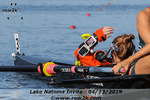
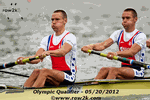
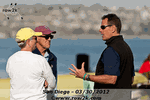
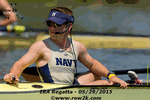
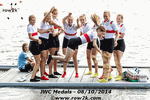
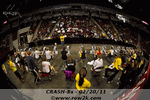
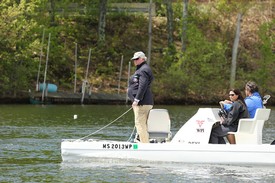

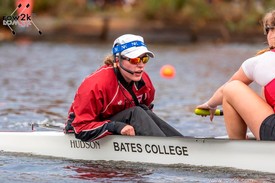








10/13/2020 8:07:33 PM